
Creating jobs and supporting start-up businesses will be key to the county’s economic recovery from the coronavirus pandemic, Shropshire Council’s leader has said.
Peter Nutting said large-scale projects across the county, including the creation of the long-awaited Oswestry Innovation Park and investment in Bishop’s Castle Business Park, would help to foster business growth and provide vital employment opportunities.
Speaking as the six-month countdown to the council elections is set to begin on Friday, Councillor Nutting said his Conservative administration had begun a “journey of economic development” since he took over as leader in 2017 – and asked voters to give him another four years at the help to see it through.
But opposition councillors criticised the current council leadership for ploughing money into controversial schemes like the Shrewsbury shopping centres, and said more focus on apprenticeships and ‘green recovery’ was needed.
Councillor Nutting said: “There is a huge development in Shrewsbury town centre and I am really excited about the Oswestry Mile End project which will open up about 50 acres of employment land, that is a huge opportunity.
“Oswestry has got a Business Improvement District (BID) that has been really helpful in us trying to rejuvenate the town centre. There is a lot of work going on in Oswestry, we own a lot of the land around the old Morrisons and we have got to start thinking about what we want to do there.
“We have spent money on Ludlow Assembly Rooms, far more than we budgeted for, but when it is finished it will be the cultural centre of south Shropshire for the next half a century.
“We are now investing in Bishop’s Castle – we are putting some money in and Marches Local Enterprise Partnership (LEP) is also investing money in a scheme to renovate the business park.
“It’s become pretty run down over the years so we will be investing a lot of money there. Some of the buildings were temporary and need replacing, but there is a huge amount of space that has not been developed.
“We are aware of at least two local businesses that are keen to expand and we will be talking to them so that whatever we provide meets their needs.”
Councillor Nutting said economic development was one of his key priorities when he took over as council leader.
He added: “We really need to provide jobs in Shropshire because we have got a very aging population and we need to keep young people in the county.”
Roger Evans, leader of the opposition Liberal Democrat group, said economic recovery should mean looking again at the plans for the Shrewsbury shopping centres, which he described as a “money pit”.
He said: “The council also has £150 million in capital sitting in the bank currently, earning less than one per cent interest per year. We would look urgently to invest that, like many other authorities have, in housing, businesses, street lighting, various ways to both combat climate change and reduce our running costs of providing these essential services.
“We need to invest in our market towns to revive the county’s rural economy. We need to really invest in broadband and communications to encourage new startup companies to our rural areas, because current facilities are not up to standard.
“If we want the next Amazon or Google to start up here it will be via IT infrastructure.
“We need to attract university graduates and entrepreneurs. We can’t afford to become a retirement county.
“More jobs and better jobs would mean people’s income would increase, their spending power would increase and conversely the income to the council would increase.”
Labour leader Alan Mosley said Covid-19 presented the county’s businesses with a “tremendous challenge” and said the council must prioritise “ensuring that businesses sector, and visitor economy, is made as secure as possible”.
He added: “Clearly one of the issues is the impact on younger people in employment, training and education who now have less job prospects.
“The council needs to maximise its investment and work on apprenticeship schemes and do whatever it can to stimulate projects which will lead to long-term skill development and education among young people.”
Describing the shopping centres as “not a good investment”, Councillor Mosley said there may have been “other ways to secure the ambitions for development other than spending council tax payers’ money”.
He said the Labour group was however supportive of the Shrewsbury Big Town Plan and town centre regeneration schemes “which are clearly targeted and well researched and supported as a way of ensuring that both our urban areas and also our rural economy is protected and advanced going forward”.
He added: “As shopping habits change it becomes more of an area for residential development, cultural and recreational development and a very important visitor attraction in its own right.
“We also want to ensure that it does continue to be a major shopping centre, particularly by encouraging independent shops.”
Pauline Dee, who leads the group of independent councillors, said she supported the council’s plans to repurpose part of the Pride Hill Centre for leisure uses, which could include a cinema, bowling alley and restaurant.
Councillor Dee said: “It would bring people into the town centre, which would help to support other town centre businesses.
“That also applies to the smaller towns like Wem. We want to encourage more people to come in and shop locally.
“The council has got a very good economic development department and they do reach out to businesses to try and encourage them to come to the county.
“That is going to be vitally important because the government is reducing the revenue support grant to councils so councils are going to have to rely more on rates and council tax to keep the county going.”
On the shopping centres, Julian Dean, the authority’s only Green councillor, said while the decision to buy them was “financially a bit bonkers”, the council must now seize this opportunity to regenerate the town centre.
He said a major factor in the county’s financial recovery from the pandemic, and future growth, would be a move towards greener economy.
Councillor Dean said: “A green recovery means a recovery where your supply lines are short, where you’re developing local green skills.
“You can’t get a heat pump installer for love nor money in this area, for example. So there’s a huge skills gap but a lot of those enterprises need to be small scale and local to make them adaptable.
“What that all boils down to is a thing called community wealth creation, where instead of companies coming in and sending profits off far away, you are creating resilient local enterprises with quality local jobs and the investment stays in the area.”


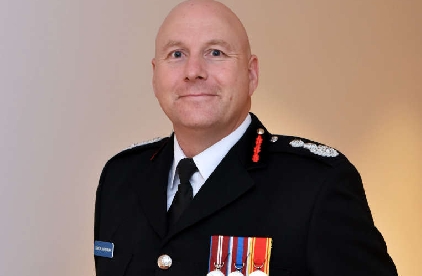 Possibility of fires linked to garden waste charges ‘on the radar’
Possibility of fires linked to garden waste charges ‘on the radar’
 Lib Dem leader canoes on river Severn
Lib Dem leader canoes on river Severn
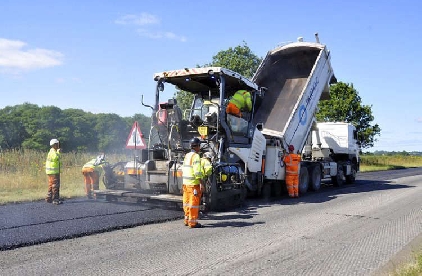 Highways contract extended for another year
Highways contract extended for another year
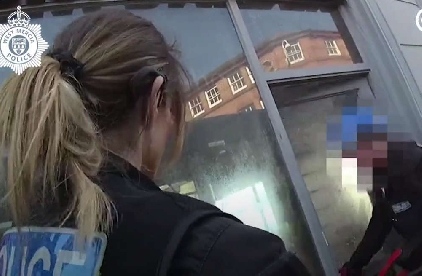 £500K seized in crackdown on barbershops used for money laundering
£500K seized in crackdown on barbershops used for money laundering
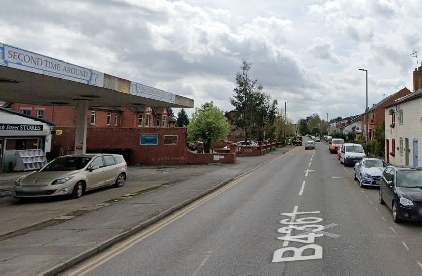 Pedestrian seriously injured in Leominster collision
Pedestrian seriously injured in Leominster collision
 West Mercia Police officer dismissed
West Mercia Police officer dismissed
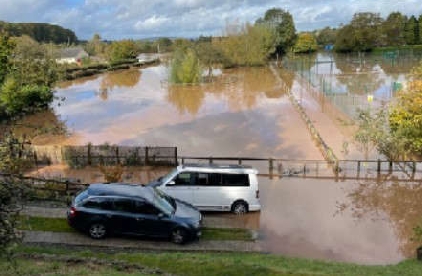 Ludlow Town Council objects to rugby club’s plans
Ludlow Town Council objects to rugby club’s plans
 Witnesses sought following assault in Craven Arms
Witnesses sought following assault in Craven Arms
